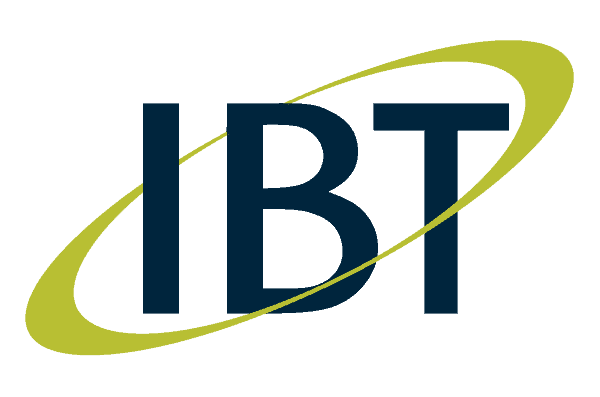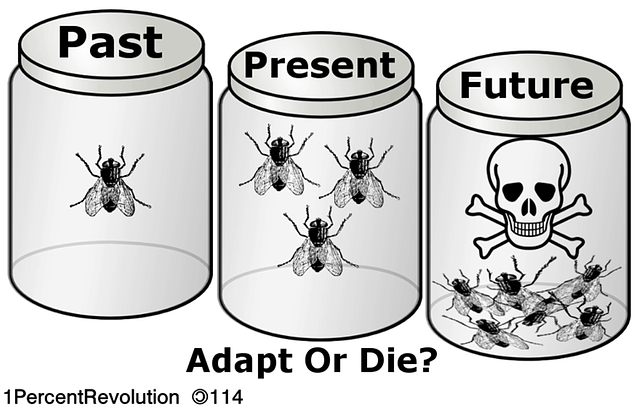“It is not the strongest of the species that survives, nor the most intelligent that survives. It is the one that is the most adaptable to change.”
Charles Darwin
Change, or flux as it has been called of late, for many of us is hard, uncomfortable even, and for some, downright frightening. According to The Flux Report by Right Management, a recent report in the UK, almost every organisation has experienced some form of major change over the last 5 years, be it restructuring, a change in leadership or downsizing, and the prognosis is more of the same for the next 5.
It is certainly nothing new, as change has been happening for hundreds, if not thousands of years. Francis Bacon said over 500 years ago, “He that will not apply new remedies must expect new evils; for time is the greatest innovator.”
So we should be used to it by now? Well, those in their 30’s are, as they have been found to be the best equipped to handle this change. Those in their 50’s and 60’s, less so, but most surprising of all was that the twenty-something’s were perceived to be the least equipped. Quite why this is so is open to conjecture, suffice to say that they will no doubt grow into it.
The point being is that if we are not adaptable and flexible, as individuals as well as companies, then this new world order we find ourselves in will pass us by. The ‘do nothing and you won’t get fired’ scenario, a common trait in my experience, is due for an overhaul.
“The world is changing very fast. Big will not beat small anymore. It will be the fast beating the slow.”
Rupert Murdoch
Take my company for instance. 17 years in and the penny dropped that our strategy had to change. On Premise solutions had become prohibitively expensive and many clients were asking for an alternative to million dollar upgrades and countless patching. Our Resourcing arm too, though successful, was beginning to experience the same hurdles that many recruitment firms have been experiencing over the last 4 years. The market had changed, social media made much of what it does obsolete and clients were less interested in quality of service over a cheaper bill.
So we have changed. We scoured the market for long term alternatives, alternatives that we hoped would stand the test of time. We evaluated different systems and services and, and after much hand wringing (most of us are over 40, so there was always going to be a bit of soul searching) we chose to partner with cloud based systems that made business easier and improved ROI, and applications that would assist real time business intelligence. Time will tell if we chose wisely, but with more than 16 years under their belts, 20,000 customers worldwide and growing by more than 380 per quarter, we believe we have.
“Everyone thinks of changing the world, but no one thinks of changing himself.”
Tolstoy
The outcome of all this change has led, in some cases, to a detachment of leadership from the businesses they run. Line managers have had to learn and develop faster in order to succeed, but over 40% of them are not entirely sure how they should move forward over the coming years. Over two thirds of the companies surveyed suggested their plans would only cover the next 12 months, and nothing more, and a whopping 84% expect HR analytics to guide their hiring and development plans for staff.
This worldwide flux has led to a need for immediate information. Businesses are competing not only locally, but on the world stage. A focus on costs, efficiencies, speed and customer service has led to more complex enterprise systems to handle this change. All of which comes at a price – in terms of dollars, disruption and risk – and until recently viable alternatives were not obviously available.
“The outlook for organisations looks set to be just as chaotic over the next five years. There is no ‘reset’ button – flux is the future and organisations need to be ready for this”
The Flux Report
Yet how should organisations cope when disparate systems hardly relate to one another and spit out reports that are days, if not weeks, old leading to a lack of visibility for executives and line managers alike. Business Intelligence has in many cases become a dirty word. Very few organisations we speak with have real time data pumping into data warehouses and even then are using these tools to merely report, not plan or data mine. They are expensive to buy and implement so why not use them as they were intended?
The future sounds bleak. Or is it?
“What we try and achieve in IT is the transformation of data into information and information into knowledge, knowledge (and experience) together become wisdom.”
Byron Williams – Founding Director IBT
The soul searching IBT went through over the last couple of years has led to a kind of watershed. Once died-in-the-mud consultants, some with over 30 years’ experience of traditional on premise solutions, have changed tack and have literally had a new lease of life. Gone are their fears surrounding security, application readiness and market maturity. In their place – and with a little help from statistics stating productivity increases of 75%, triple digit growth without the need for extra staff and financial close times done in hours, not days – they agree that cloud based systems provide the agility needed for clients to navigate their way forward.
Costs are reduced, collaboration is improved and customers are given a better experience. With prudence, true cloud applications can improve margins, increase revenue and provide 360 degree visibility in real time to management. Shopfloor staff need only a browser to enter the systems and work can be completed via tablet or phone. The systems are ultimately scalable; both up and down, and can grow with the business – surely the true essence of agility.
In an article in Charter magazine earlier this year, former premier of New South Wales Nick Greiner said that in some ways [agility] is a buzzword, but it is also a genuine reflection of the basic problem that businesses large and small face. “It’s a very real issue and challenge because it’s easy to define the problem but it’s a little harder to define what you need to do to respond to it,” he says.
The article then asked Dr. Adrian Blundell-Wignall, Special Advisor to the Secretary-General on Financial Markets and Director in the Directorate for Financial and Enterprise Affairs (DAF) at the OECD, whether businesses can be agile and plan for the future.
“Yes you can,” Blundell-Wignall says. “Indeed, you must do this”.
CEO of Carnival Australia Ann Sherry went further by saying, “You’ve got to take short, medium and long term horizons and you’ve got to have options against each one of them because you can’t control it and again the circumstances in which we operate change quickly so you’ve got to have the ability to have an objective but maybe the path to it will change.”
Only real time visibility can do this, for if you know what is happening not yesterday, but this very moment, you are able to plan more effectively and meet this change head on. As well as cloud based systems, Change Data Capture platforms can assist with this, getting data where it is needed almost immediately and help reduce ETL development costs, often the bug bear of data integration. The benefit of this approach is that it is much faster and more efficient and enables businesses to better leverage their initial data warehouse investment.
IBT is a reseller, implementation and solution partner of NetSuite, the world’s leading cloud based business software suite and Attunity, a leading provider of information availability software solutions.


